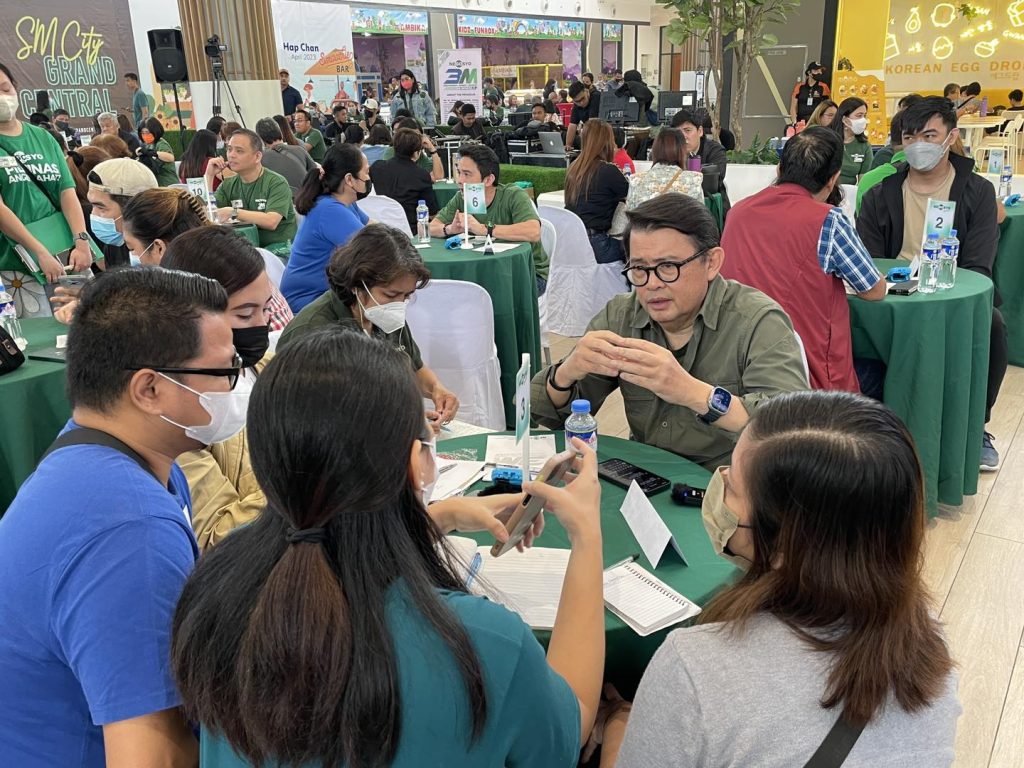
PBBM Receives Updates on Private Sector Plans for Job Creation
May 23, 2023
Muntinlupa MSMEs Turn out for Go Negosyo’s 3M On wheels
May 28, 2023
MSMEs Prepositioned to Lead PH's Post-Covid Economic Recovery
The country’s small entrepreneurs are pre-positioned to lead the country’s recovery following three years of the Covid-19 pandemic. “If there is one sector that has been active and striving during the pandemic, it is the micro, small, and medium enterprises (MSMEs),” said Go Negosyo founder Joey Concepcion. “They have borne the brunt of the worst but they persevered and they are ready to take advantage of this rebound,” he said.
President Ferdinand Marcos Jr. said last Monday during his speech at an event in Mandaluyong City that “the worst is over” for Covid-19 in the Philippines. The President added that with the announcement of the World Health Organization that Covid no longer represents a public health emergency, the Philippines can refocus its plans and priorities on the development of its economy and the betterment of the lives of ordinary Filipinos.
Concepcion said the pandemic even became an opportunity for some MSMEs to pivot to digital technology. “They quickly adapted to selling online, and thanks to platforms that were easy and accessible for them, such as the digital payments platforms, social media, and delivery and ride-hailing apps, they became quite fast at changing the way they did business,” he said. Some nano-preneurs, he said, were even created during the pandemic. “We saw people becoming micro-influencers and content creators; these are practically nano-preneurs because their capital is their own skills,” he said.
The Go Negosyo founder further said that present conditions are favorable for MSMEs as the Senate and the House of Representatives facilitated two crucial laws that are critical to MSME development and jobs creation.
Last Monday, the Senate passed on third and final reading Senate Bill 2021, or the proposed amendments to the Magna Carta for Small Enterprises, institutionalizing shared service facilities (SSF) for MSMEs. The House of Representatives, meanwhile, approved on third and final reading House Bill 6336, a measure condoning the existing loans that farmers incurred in owning lands under the Comprehensive Agrarian Reform Program (CARP).
“I am glad that MSMEs remain a priority of the President’s agenda. Even the condoning of agrarian reform beneficiaries’ debts will help because many of our nano- and micro entrepreneurs are in the agriculture sector,” he said. ”Both the amendment to the Magna Carta for Small Businesses and House Bill 6336 will go a long way in helping generate more jobs for the country,” he said. According to the DTI, MSMEs generate 64.67 percent of jobs in the country.
Tourism, said Concepcion, is a particularly bright spot as people are now confident to travel as restrictions in all parts of the world have been eased.
“Tourism is a sector that has been quieted, but now there is revenge travel,” he said. “There are opportunities for business in this sector, and these opportunities for entrepreneurs are made even bigger because Philippine tourism has plenty of room and potential to grow,” he said.
He also said that it might be time to trust that people can take care of their own health. “By now, people already know how to manage their own situations,” he said. “I think our doctors have enough experience with Covid, and we have the antivirals and the vaccines, and we know when to mask,” he said. “What we have to do is continue to bring confidence that the Philippines is a safe place,” he said.
“The momentum is already there. We have a President that is actively pushing for investments, and we are all bullish about the economy,” he said.

2/F RFM Corporate Center, Pioneer cor. Sheridan Sts. Mandaluyong City, Metro Manila, Philippines

